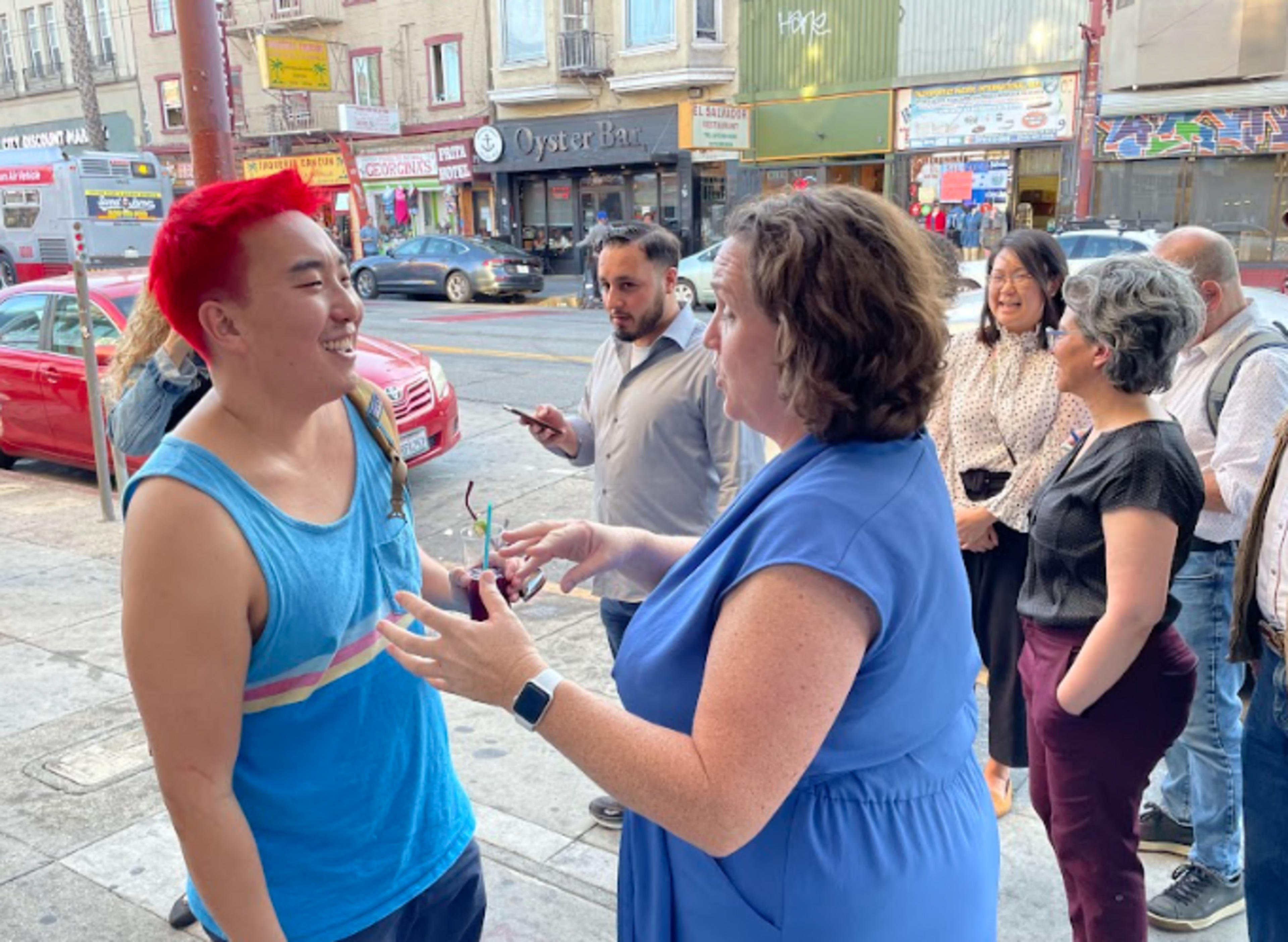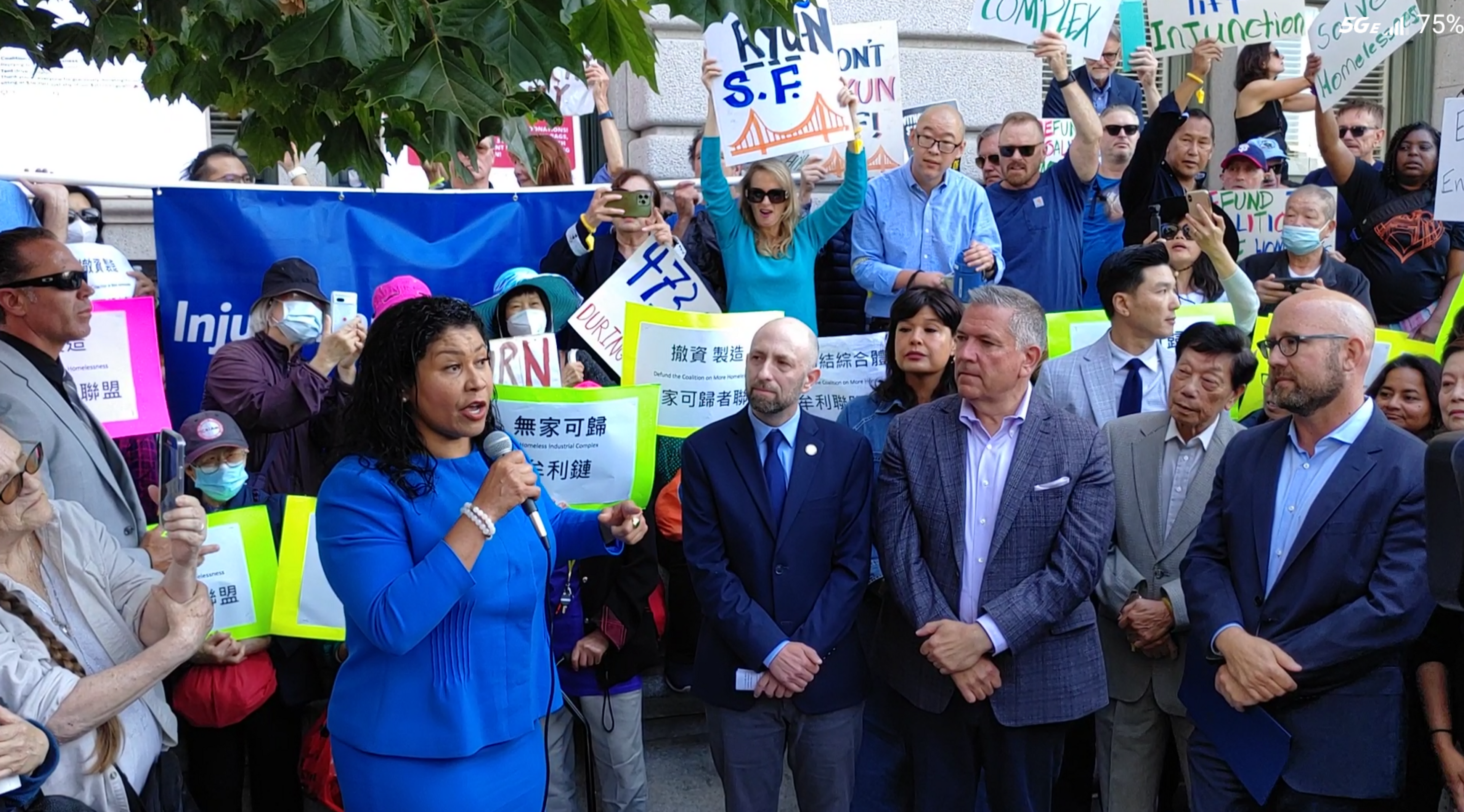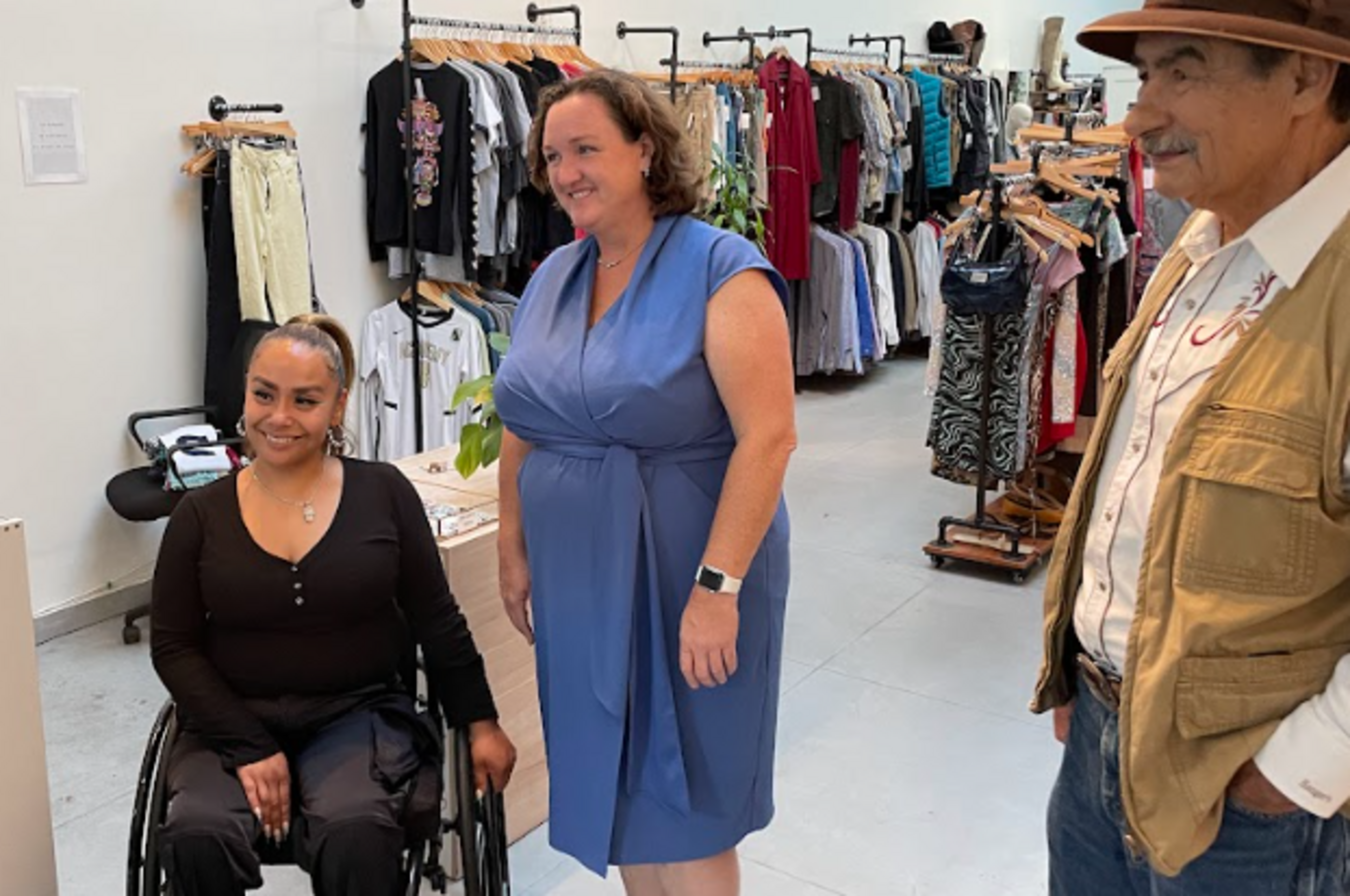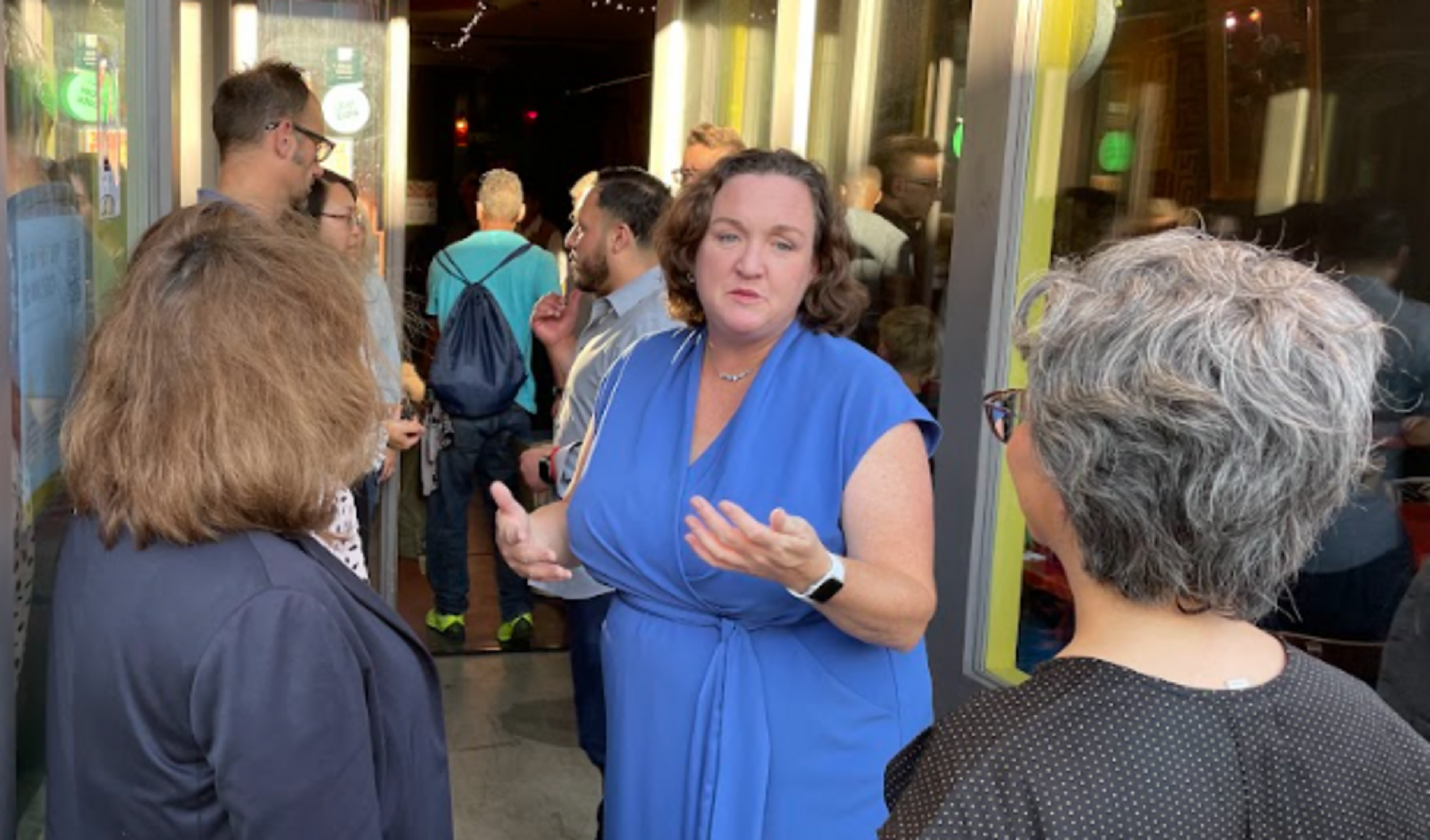Rep. Katie Porter left the whiteboard at home Tuesday as she paid a visit to the Mission to meet with small business owners, many of whom blame drugs and homelessness plaguing the neighborhood for their sluggish pandemic recovery.
Porter is a bit of a rock star in Democratic circles thanks to viral clips of her using erasable markers and charts to school some of the nation’s most powerful CEOs in congressional hearings, but she also showed an everywoman side Tuesday.
Drawing attention to a stain on her dress, Porter joked about an event in Stockton two days prior in which some of her most exuberant supporters managed to spill drinks on her not once, nor twice, but three times, including a dousing down the back of her dress. Jokes aside, Porter also noted that the decisions she made to refuse campaign contributions from corporate PACs and lobbyists “make me stand out” from almost every other member of Congress.

Since announcing her campaign to succeed Dianne Feinstein in the U.S. Senate, Porter and her opponents—fellow House Reps. Adam Schiff and Barbara Lee, as well as business executive Lexi Reese—have been making whirlwind tours of California, traversing up and down the state to meet with voters, rally the support of regional power brokers and press flesh with campaign benefactors. The three Congress members and affiliated committees have collectively raised more than $36 million in the race, according to the Los Angeles Times (opens in new tab).
Porter, who represents Orange County, caught an early flight to the Bay Area to meet with local labor leaders and fundraise before making her way to a small event hosted by the city’s Latinx Democratic Club at Senegalese restaurant Bissap Baobab. She was scheduled to fly back the same night to get home to her children.
San Francisco may be the fourth-biggest city in California, but it could play an especially outsize role in Porter’s chances of moving to the upper chamber of Congress, thanks to the city’s sizable base of progressive voters and ripe fundraising pipeline.
But anyone looking to snag the votes of San Franciscans—as well as their campaign contributions—will need to choose a side on the crises facing the city, from housing and homelessness to how to address drug addiction and treatment.
Perhaps no issue is more pressing at the moment than a court order that blocks city officials from clearing homeless encampments. Heated protests were waged last week outside a federal courthouse, and Mayor London Breed has argued the city must be “able to clear the streets.”

Porter admitted she hadn’t studied the judge’s injunction and noted that permanent supportive housing is the best way to get people off the streets, but she seemed to offer some support for Breed’s efforts.
“I would tell you as a practical matter, I think Mayor Breed has it correct that we need places to put people, and that is a core governmental duty,” Porter said. “I do want to think about: How do we do this in a way that doesn’t replicate some of the mistakes we’ve made in the past when we’ve addressed social harms? So, it can’t be sort of, you know, move them elsewhere. We can’t incarcerate these folks. We have to think about how to think about the civil rights risks of it. But look, we need more housing. It’s going to have to be everywhere.”
On the issue of the fentanyl crisis, Porter said she has spoken with San Francisco Assemblymember Matt Haney about overdose reversal medicine and policies that emphasize treatment in addition to harm reduction.
“One of the things that Matt emphasized to me is that there are changes in how we do treatment,” Porter said. “So, we’re reviving people, we’re rescuing them but then they’re getting sick again. And so what we need to do is—as these treatments become less onerous and less difficult for patients—this is our moment to really invest in treatment, not just in our emergency care.”
During her trip to the Mission, Porter stopped by multiple businesses, including the reception at Bissap Baobab and short visits with the owners of Clean Cut Barbershop, Restaurante Hermelinda and Born Again Thrift.

Apolonia Gomez, the barbershop owner, said that graffiti, unhoused people and street vendors have made it more difficult to grow her business. Vanessa Porras, a co-owner of the thrift shop, also noted that she felt like government officials were not paying enough attention to the local level.
Porras added that it was a definite surprise to have a congresswoman walk into her store, “especially in this part of the Mission.”
Ciaran Cleary, a six-year San Francisco resident, stopped in his tracks when he saw the candidate walking down Mission Street.
“I would support her in the crowded race,” Cleary said. “Also, I love the whiteboard.”
With very few policy differences between the candidates, Porter will face a difficult task in locking down a majority of support in San Francisco.
Schiff, who has the institutional backing of Speaker Emerita Nancy Pelosi and drew a larger crowd last month during a visit to Bissap Baobab, has a sizable lead in fundraising. Meanwhile, Lee has more name recognition locally as a 25-year congresswoman in Oakland.
Regardless, Porter sounded like a candidate who plans to lean on support from San Franciscans.
“This is not my first time to the Mission,” she said, “and it certainly won’t be my last.”
